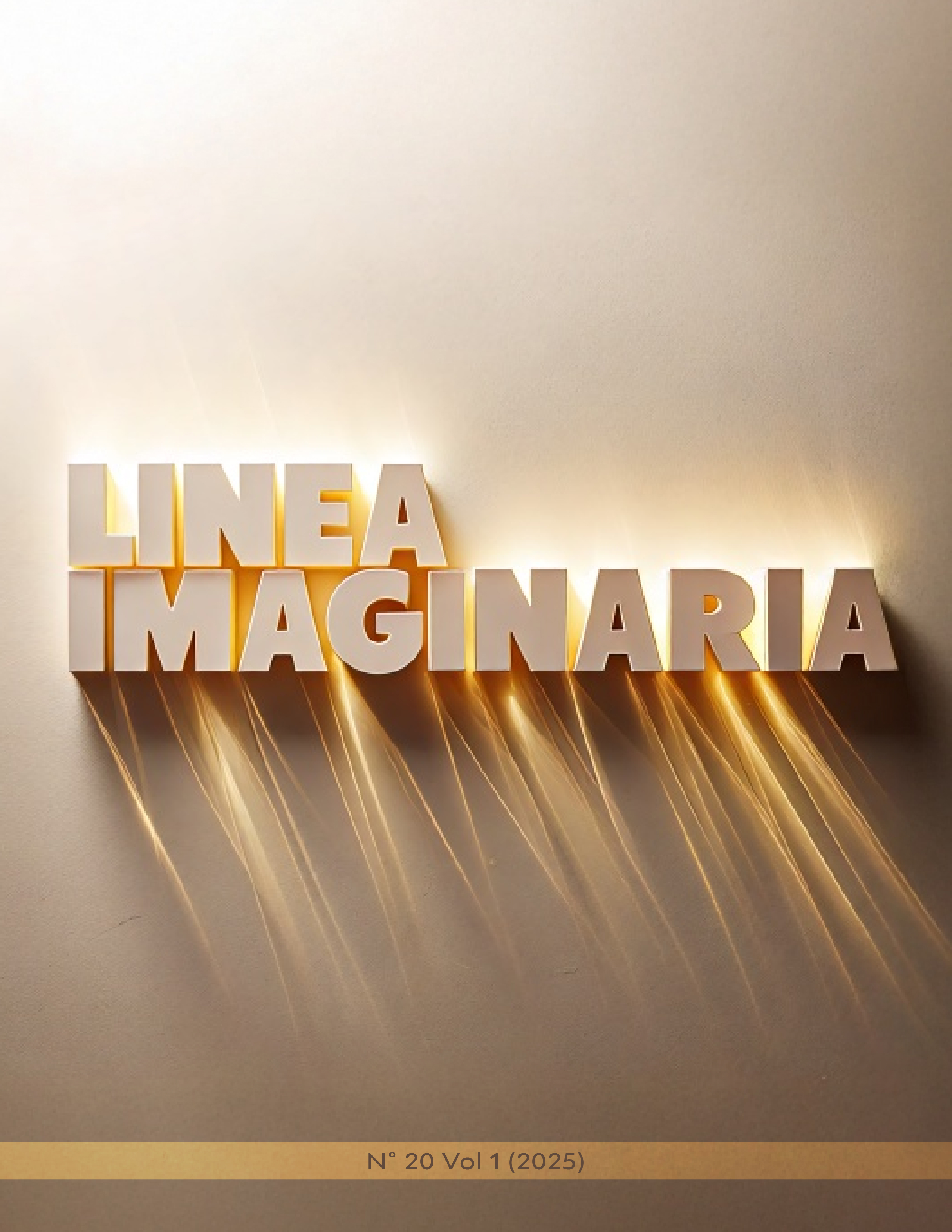LOS JUEGOS TRADICIONALES DESDE LA EDUCACIÓN FÍSICA COMO ESTRATEGIA PARA EL DESARROLLO DE LAS HABILIDADES BLANDAS EN ESTUDIANTES DE BÁSICA SECUNDARIA
DOI:
https://doi.org/10.56219/lneaimaginaria.v1i20.3702Palabras clave:
Educación física, juegos tradicionales, habilidades blandas, convivencia escolarResumen
Dentro de una sociedad caracterizada por el avance apresurado de la tecnología y la
ciencia que se convierte en desafíos para los distintos países dentro de los cuales se
encuentra Colombia, donde existen igualmente constantes cambios caracterizados por
las nuevas formas de comunicarse e interactuar entre estudiantes de básica secundaria
que conlleva a una desfiguración en cuanto al desarrollo de las habilidades blandas lo
cual repercute en la convivencia escolar como social, surge la inquietud por desplegar
un artículo a manera de ensayo académico cuyo objetivo se centra en destacar la
importancia que representan los juegos tradicionales desde la educación física como
estrategia para el desarrollo de las habilidades blandas con estudiantes de básica
secundaria, a partir de las experiencias pedagógicas vividas en la Institución Educativa
Megacolegio El Progreso, Yopal Casanare con estudiantes de los grados sexto. La
intención es reflexionar respecto al desapego que poseen los estudiantes ante lo
tradicional que hace parte de su acervo cultural, mientras aumenta la influencia e impacto
de las nuevas tendencias digitales en la misma medida que el estudiante asume una
mayor adicción a las redes sociales, juegos, retos que hace parte del enorme consumo de información dentro de la cotidianidad de los jóvenes; de ahí, la importancia de explorar experiencias que permitan disertar con relación a la educación física como asignatura obligatoria donde se pueden incorporar los juegos tradicionales, en favor de fortalecer las habilidades blandas y por consiguiente mejorar la convivencia escolar y social de los estudiantes.
Descargas
Citas
Becerro, A. & Torrebadella, X. (2013). El joc tradicional i popular a l’escola primària: una proposta de l’educació física cap a la cessió d’autonomia. REIRE: Revista d’innovació i Recerca En Educació, 6(2), 100–118. https://n9.cl/y2vmr
Decreto 1965- 2013 Sistema Nacional de Convivencia Escolar y Formación para el Ejercicio de los Derechos Humanos, La Educación Para la Sexualidad y la Prevención y mitigación de la Violencia Escolar. Bogotá Colombia
Extremera, A. & Ruiz, P. (2016). El juego motor como actividad física organizada en la enseñanza y la recreación [Motor play as an organized physical activity in teaching and recreation]. EmásF: Revista Digital de Educación Física, 38(38), 73–86.
arcía, E. (2016). Los Juegos Tradicionales y su influencia en las Habilidades Motoras Básicas de los niños de I y II años de Educación Básica en la Escuela “Manuel Octavio Rivera” del Cantón Montecristi, Año Lectivo 2016 – 2017 [Traditional Games and their influence on Basic Motor Skills of I and II year-old children of Basic Education at the “Manuel Octavio Rivera” School of the Montecristi Canton, School Year 2016 - 2017]. (Tesis de pregrado), Universidad Laica Eloy Alfaro de Manabí, Manta, Ecuador.
Generelo, E. & Lapetra, S. (1993). Fundamentos de la Educación Física para la Enseñanza Primaria [Fundamentals of Physical Education for Primary Education]. In D. Blázquez Sánchez (Ed.), Fundamentos de la Educación Física para la Enseñanza Primaria (INDE (ed.); Vol. 1).
Gómez, R. (2007). La enseñanza de la educación física en el nivel inicial y el primer ciclo de la E.G.B.: Una didáctica de la disponibilidad corporal [The teaching of physical education in the initial level and the first cycle of the E.G.B.: A didactics of bodily availability]. Buenos Aires, Argentina: Stadium. https://n9.cl/pea0z
Ley 1620, (2013) Sistema Nacional de Convivencia Escolar y formación para el ejercicio de los Derechos Humanos, la Educación para la Sexualidad y la Prevención y Mitigación de la Violencia Escolar. Ministerio de Educación Nacional.
Manzano, J. & Ramallo, C. (2005). El juego como medio de desarrollo integral en el ámbito educativo [The game as a means of integral development in the educational field]. 25, 287–300. https://n9.cl/1094i
Medina, G. & Sandoval, N. (2015). Estudio de los Juegos Tradicionales Ecuatorianos en el desarrollo de la motricidad Gruesa de los niños de 4 a 5 años de la Institución Educativa Luis Pasteur de la Parroquia de Guayllabamaba [Study of Ecuadorian Traditional Games in the development of gross motor skills in children from 4 to 5 years of age from the Luis Pasteur Educational Institution of the Parroquia de Guayllabamaba]. (Tesis de pregrado). Universidad De las Fuerzas Armadas del Ecuador, Quito, Ecuador. http://repositorio.espe.edu.ec/handle/21000/11234
Mendoza, M., Analuiza, E. & Lara, L. (2017). Los juegos populares y su aporte didáctico en las clases de educación física [Popular games and their didactic contribution in physical education classes]. Revista Digital de Educación Física, (44), 79-93. https://n9.cl/j9fv
Navarro, V. (2010). La complejidad ante la modificación de los juegos motores. Acción Motriz, 4, 46-54.
Pérez-Gómez, P. & Sacristán, G. (2003). Comprender y transformar la enseñanza Este material se utiliza con fines exclusivamente didácticos [Understand and transform teaching This material is used for educational purposes only]. Madrid, España: Editorial Morata. https://n9.cl/8c7z
Plan Nacional Decenal de Educación PNDE (2016-2026). Un pacto social por el derecho a la educación. Gobierno Nacional y el Ministerio de Educación rumbo a la calidad educativa del país.
Renson, R. Smulders, H. (1978). Valksporte in vlanderen. Bruselas: Edit. Bloso.
Romero, N. A., Guajardo, J. G., y Nava, J. M. (2017). Competencias socioemocionales como predictoras de conductas prosociales y clima escolar positivo en adolescentes. RIFOP: Revista interuniversitaria de formación del profesorado: continuación de la antigua Revista de Escuelas Normales, 31(88), 77-90.
Vargas Luis, C. M. (2020). Habilidades blandas para mejorar la convivencia escolar en estudiantes de sexto grado de la Institución Educativa “Telmo Hoyle”, Huanchaco 2019.
Descargas
Publicado
Cómo citar
Número
Sección
Licencia
Derechos de autor 2025 LÍNEA IMAGINARIA

Esta obra está bajo una licencia internacional Creative Commons Atribución-NoComercial-CompartirIgual 4.0.
La revista Línea Imaginaria conserva los derechos patrimoniales (copyright) de las obras publicadas, que favorece y permite la reutilización de los mismos bajo la licencia Creative Commons Atribución-NoComercial-CompartirIgual 4.0 , por lo cual se pueden copiar, usar, difundir, transmitir y exponer públicamente, siempre que se cite la autoría y fuente original de su publicación (revista, editorial, URL y DOI de la obra), no se usen para fines comerciales u onerosos y se mencione la existencia y especificaciones de esta licencia de uso. Si remezcla, transforma o crea a partir del material, debe distribuir su contribución bajo la misma licencia del original.














